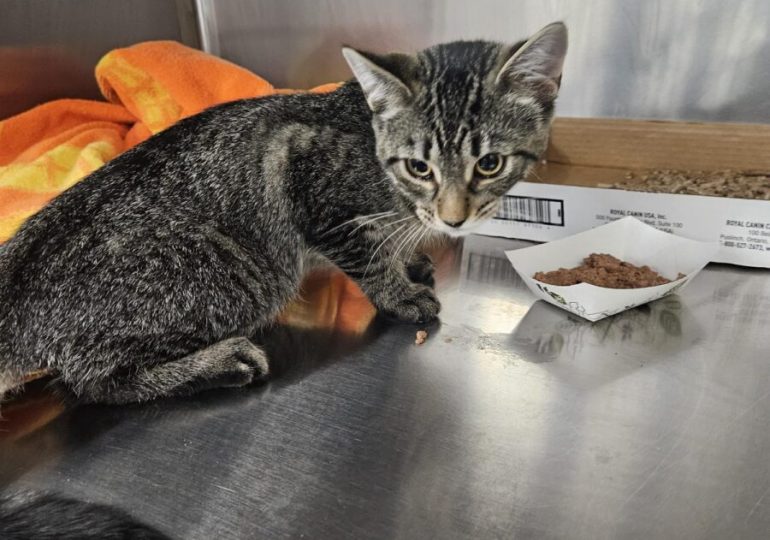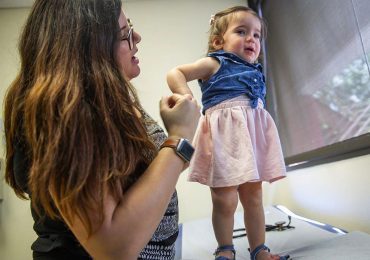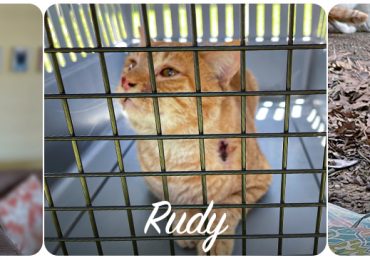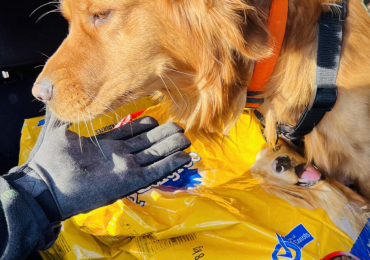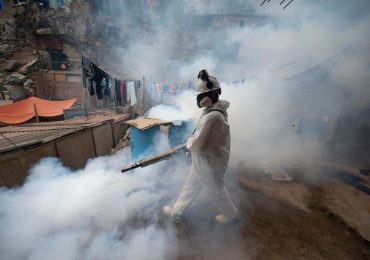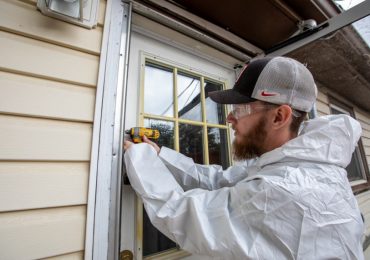As we commemorated our 150th anniversary, the Ontario SPCA and Humane Society marked significant milestones in 2023 toward our goal of reducing pet overpopulation. Notably, we celebrated the completion of our 150,000th spay/neuter procedure since opening high-volume spay/neuter services to the public in 2009. This achievement has prevented an estimated 4,010,640 unplanned kittens and 2,816,280 puppies that may have ended up homeless.
In our efforts to reduce pet overpopulation and deliver spay/neuter services to underserved populations, the Ontario SPCA operates two high volume spay/neuter clinics, a Mobile Animal Wellness Services unit, and new MASH-style clinics.
This year alone, 7,500 dogs and cats have been spayed/neutered, and more than 500 animals vaccinated through the Ontario SPCA’s veterinary clinic services. These services are vital to improve the lives of animals in our community and the people who love them.
410 new MASH-style spay/neuters
Another accomplishment worth celebrating in 2023 is the accreditation of the Ontario SPCA by the College of Veterinarians of Ontario to run remote area companion animal mobile services, more commonly referred to as MASH-style clinics. Through this new service, 410 animals were spayed or neutered – animals who would not have otherwise received these procedures.
“Our MASH clinic is a portable surgical and wellness unit,” says Dr. Stephanie Black, Ontario SPCA Chief Veterinary Officer. “We are now able to provide affordable spay/neuter and vaccination services to communities that struggle to access veterinary care. These spay/neuter services prevent unwanted litters, and we offer vaccinations help to keep animals healthy and with the people who love them.”
313 spay/neuters and 210 vaccines provided aboard mobile unit
The Ontario SPCA and Humane Society’s Mobile Animal Wellness Services unit, which was launched in 2019 thanks to a Pet Valu Companions for Change sponsorship, was stationed in Sudbury throughout 2023 to provide additional accessible spay/neuter and wellness services to Northern pet families. A total of 313 spay/neuter surgeries and 210 vaccine appointments were completed aboard the unit in 2023.
This year, Pet Valu provided an additional $150,000 Companions for Change sponsorship which will be used to support the Ontario SPCA and Humane Society’s Mobile Animal Wellness Services unit over the next three years.
Accessing vet care in the North
In many Northern communities, there is a lack of basic animal wellness services, including spay/neuter services. This shortage has also contributed to an increase in animal populations across Northern Canada.
One individual made the 4.5-hour drive from Iroquois Falls to access the mobile unit in Sudbury this year. A volunteer with several Northern animal rescue organizations, she brought with her numerous animals who needed spay/neuter surgeries, vaccinations and wellness exams, underscoring the need for these services in the North.
Over 6,000 high volume spay/neuter clinic procedures
The Ontario SPCA has two brick and mortar clinics, the Ontario SPCA Centre Veterinary Hospital in Stouffville and the Ontario SPCA Marion Vernon Memorial Animal Clinic in Barrie, that opened in 2009 to assist the public in providing high volume spay/neuter services. These clinics have completed over 6,000 spay/neuter procedures, and more than 300 vaccine appointments this year alone.
Spay/neuters reduce health risks and behavioural issues
Aside from the benefits in helping to reduce pet overpopulation, spay and neuter procedures have other positive results. Shelter intake numbers are decreased, and certain health risks are also reduced.
“Spay/neuter services help to prevent certain types of cancer and behavioural issues in animals,” says Dr. Black.
Spayed/neutered cats and dogs are also less likely to roam, which reduces their risk of accident, injury and loss.
Want to learn more?
Learn more about the Ontario SPCA spay/neuter services at ontariospca.ca/spayneuter
The post Making a paws-itive impact on pet overpopulation with accessible spay/neuter appeared first on Ontario SPCA and Humane Society.
Leave a comment

